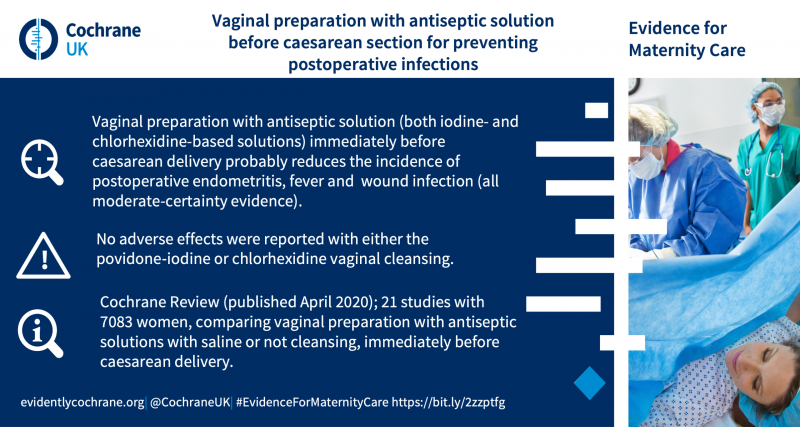
Evidence for Maternity Care is an ongoing series of evidence relevant to maternity care, shared on social media. We have had great feedback that midwives and clinical support staff find it useful for keeping up to date with the latest evidence. We launched the series in 2015 and refreshed it in 2020.
The hashtag is #EvidenceForMaternityCare.
Digest
Sign up here to get the latest Evidence for Maternity Care news in your inbox.
Quarterly blog posts with a collection of evidence and resources
Every quarter, we will publish a collection of evidence and resources on our blog, Evidently Cochrane. It will flag up and link to recent Cochrane Reviews and related resources from the previous three months, such as Cochrane Clinical Answers, Cochrane Special Collections, and podcasts, blogs, blogshots and anything else we think would be useful, for example we may highlight a recent guideline. We will include news of current opportunities for research involvement or to make your voice heard, and of upcoming events.
Blogshots:
These are visual summaries of key information from Cochrane Reviews, such as the one below, which we share on social media with a link to the review. We occasionally bring together a collection of these in a blog post, such as this one on breastfeeding. We update our blogshots when the reviews are updated, so you can be confident you are reading about the latest evidence. They are shared on Twitter and are available to download and share here.

Evidently Cochrane blogs:
You’ll find Evidently Cochrane blogs for this series in the Evidence for Maternity Care category. Like our blogshots, we update our blogs when the reviews are updated.
Special series:
View all of the content from 'Maternity Matters', our special series of blogs and other resources on women's and babies’ health, during and after pregnancy and childbirth.
Project partner:

